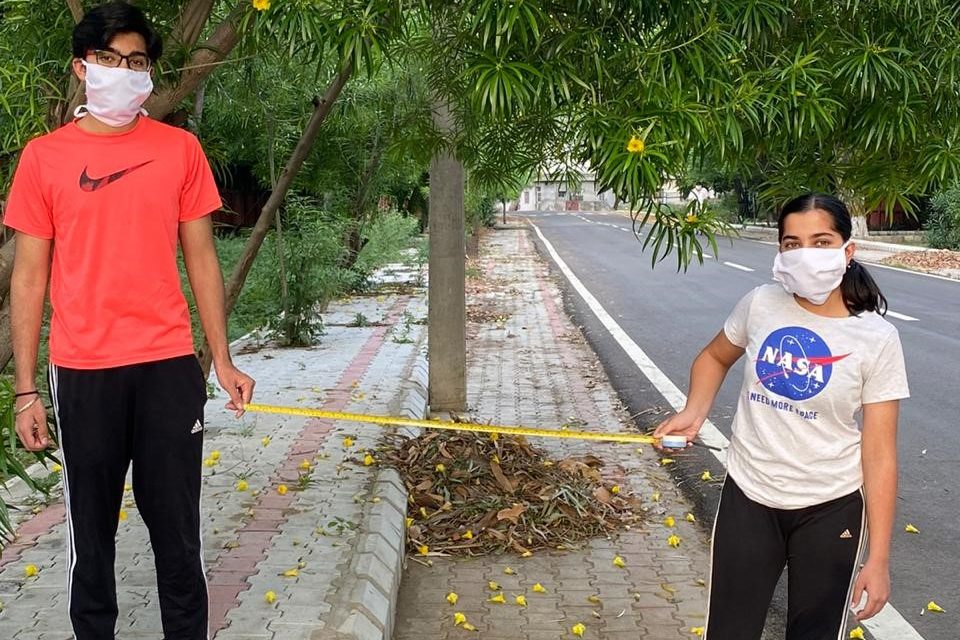
Road safety is among the priorities that the Patiala Foundation, India, uses to promote a safer, more sustainable, livable city for its citizens. The road safety element of the organization’s work has a strong focus on walking. Patiala Foundation’s Chief Functionary, Ravee Singh Ahluwalia, was prompted to tackle the issue of walking, while teaching road safety at schools in the city. “You tell us to use the footpaths and zebra crossings,” the children told him, “but there are no footpaths and zebra crossings.” Says Ravee, “I started going around the city, looking for footpaths and crossings and discovered that they were right.” He found that the local authority had been removing the sidewalks to widen the road for motorized traffic, based on the assumption that traffic congestion meant that more road space was needed.
Ravee decided to find out whether the assumption that motorized traffic needed higher prioritization was correct. Patiala Foundation worked with TRIPP Department of Civil Engineering Indian Institute of Technology (IIT Delhi) to do a survey. The survey looked at police and census data about the modal share of work trips in Patiala (census 2011), major causes of fatalities, and where the crash black spots were. The survey found that almost half of the population in Patiala walks or cycles to work daily (21% were pedestrians, and 25% were bicycles), and only 6% of people used cars for the commute. “Contrary to what the authorities were doing,” Ravee says, “infrastructure was being planned based on the needs of 6% of the total traffic. We took this logic, along with an online petition from the local community, to the authorities and they agreed with us that all stakeholders need space.”
As a result, the local authorities recognized the need for walking space and have started reconstructing footpaths. Tenders for new roads will include provision for footpaths. The work is being done in a phased manner, and, so far, all six roads have been provided with minimum pedestrian facilities. Patiala Foundation is a member of the district road safety committee consulting on the work and is supporting the local government’s commitment and action by building public support. It is working with the administration to continue to improve the pedestrian facility and on a plan to convert unused sidewalks on main roads to cycle tracks.
Safe, sustainable mobility runs through a number of Patiala Foundation’s other projects. The GreenCABS initiative, for example, provides new eco-friendly cycle rickshaws to people either already plying conventional rickshaws or who wish to start. Each GreenCAB comes with a uniform, insurance, permit, and first aid kit. Cycle rickshaw drivers are trained to adhere to the traffic rules and to act as role models for others in their communities. The rickshaws themselves are more aerodynamic and lighter in weight than conventional rickshaws, built of sustainable materials, and fitted with seat belts. After a certain period of time, drivers can become the owner of the cycle rickshaw, enabling them to build up a livelihood and also a banking practice, as its livelihood initiative, iSEWA, connects them with a basic bank account and financing without the usual collateral guarantee. With this initiative, drivers have a way to make a living; citizens can access safer, regulated transport; and the city benefits from reduced pollution and active mobility. There are currently 545 GreenCABS across the state in 13 districts. Patiala Foundation has mapped all GreenCAB drivers so that community members can access their services through iSEWA, using an online booking platform. It combines these practical actions with advocacy to promote cycle rickshaw use as an eco-friendly option. It is also pushing for rickshaw sheds that drivers can use to park and wait for passengers.
Other Patiala projects, including iSEWA, connect citizens to local services and to the city’s heritage. Although, not strictly “road safety,” these projects tie into the concept of more sustainable, local journeys and citizens who are proud of and engaged in improving their city. Read more HERE.